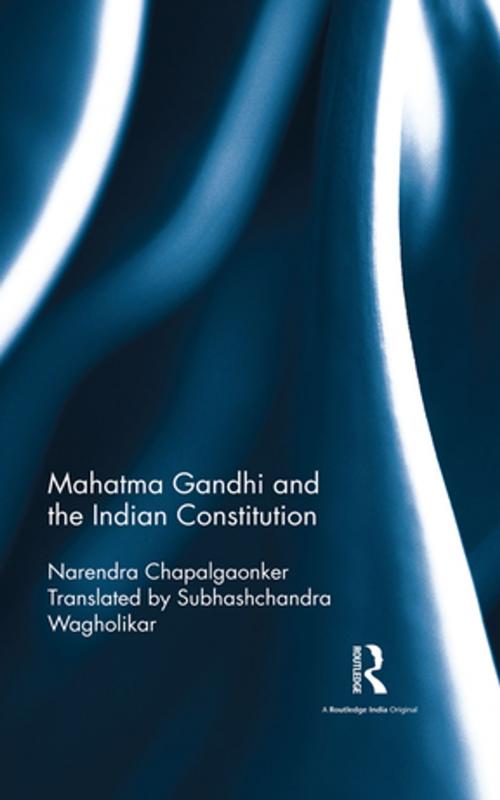Mahatma Gandhi and the Indian Constitution
Nonfiction, History, Asian, India, Social & Cultural Studies, Political Science| Author: | Narendra Chapalgaonker | ISBN: | 9781317330738 |
| Publisher: | Taylor and Francis | Publication: | December 22, 2015 |
| Imprint: | Routledge India | Language: | English |
| Author: | Narendra Chapalgaonker |
| ISBN: | 9781317330738 |
| Publisher: | Taylor and Francis |
| Publication: | December 22, 2015 |
| Imprint: | Routledge India |
| Language: | English |
Why did the Constituent Assembly of India discard Mahatma Gandhi’s concept of constitutional structure that gave prominence to villages, and prefer parliamentary democracy instead? Why did the self-sufficient and self-governing village of his dream not find a place in India’s political edifice?
This book explores these and other important questions that are intrinsically linked to the making of modern India. It traces the events leading up to Independence, the freedom struggle and the forming of the Constituent Assembly. The volume looks at the underlying foundations of the Indian nation state and the role of leaders like Jawaharlal Nehru, Sardar Vallabhbhai Patel and B. R. Ambedkar. It further explores the linkages and the dissonances between Gandhi’s ideas and principles and the Indian Constitution.
Engaging and accessible, this book will be an interesting read for researchers and scholars of modern India, South Asian politics and history.
Why did the Constituent Assembly of India discard Mahatma Gandhi’s concept of constitutional structure that gave prominence to villages, and prefer parliamentary democracy instead? Why did the self-sufficient and self-governing village of his dream not find a place in India’s political edifice?
This book explores these and other important questions that are intrinsically linked to the making of modern India. It traces the events leading up to Independence, the freedom struggle and the forming of the Constituent Assembly. The volume looks at the underlying foundations of the Indian nation state and the role of leaders like Jawaharlal Nehru, Sardar Vallabhbhai Patel and B. R. Ambedkar. It further explores the linkages and the dissonances between Gandhi’s ideas and principles and the Indian Constitution.
Engaging and accessible, this book will be an interesting read for researchers and scholars of modern India, South Asian politics and history.















